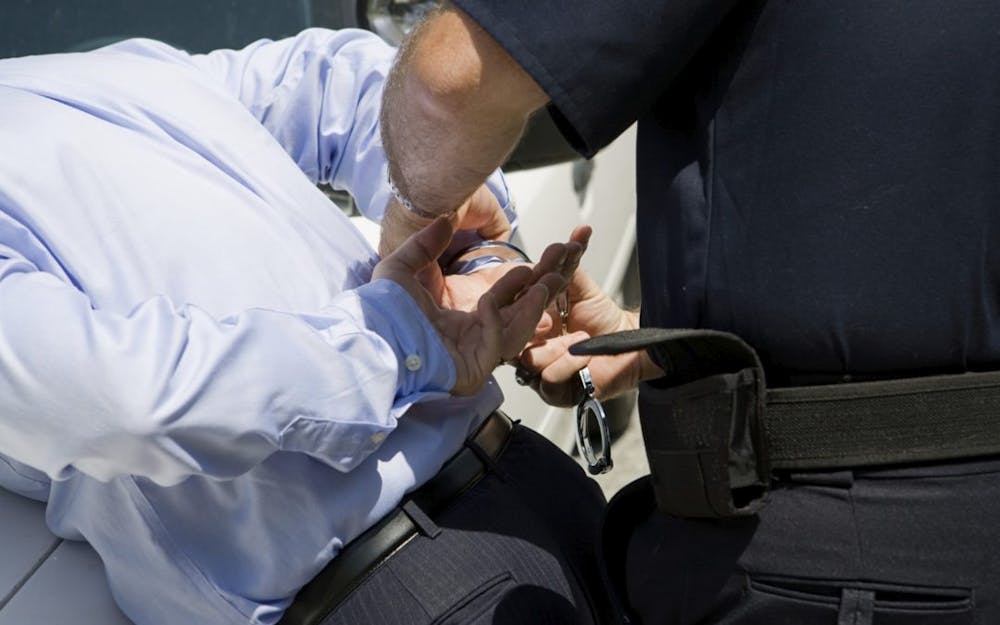The job of a police officer is to “serve and protect,” but their day-to-day tasks focus on finding crimes, gathering evidence against the perpetrator, and arresting them for trial. Anything that you say to a cop could potentially become evidence against you if you are arrested for a crime.
There is basic identification or vehicle registration information that you may need to share with a police officer, but you should never share information about your case with police officers. If you were stopped and investigated or arrested for a crime in Ventura or the surrounding areas, tell the officers that you want a lawyer and call the Law Offices of Bamieh and De Smeth. To schedule a free legal consultation on your case, call our Ventura criminal defense lawyers today at (805) 643-5555.
How Does the “Right to Remain Silent” Work in California?
Many people understand the basics of their “Miranda rights” and understand they can “plead the fifth” and use their “right to remain silent,” but the legal specifics of how these rights work is often far more complex than you might expect.
Your Miranda rights are a list of rights that police should warn you about and make sure you understand before they interrogate you. Because of how these rights are used on TV, many people can repeat them verbatim: “You have the right to remain silent,” and so on. Again, because of TV, many people also misunderstand these rights.
Police do not need to “read you your rights” when they arrest you. Instead, these rights only come up if you are in police custody and they want to question you. This is known as an “investigatory detention,” and the law sees the pressure and fear of this situation as a threat to our civil rights. Police counteract this by ensuring you understand your right to remain silent and your right to an attorney before they start questioning you.
You should always refuse to answer questions when you are being questioned by police after being arrested. Anything you say can be used against you in court, as the Miranda rights say, so you should activate your right to remain silent.
Oddly enough, you must affirmatively speak up and say that you would like to use your right to remain silent. Simply being silent is not enough to get the police to stop asking questions. However, once you say you want to remain silent, police should stop questioning you about the topic, and you should not start talking to them again.
Once you activate your right to remain silent, any information that police force out of you should be barred from use in court. Moreover, police and prosecutors cannot use the fact that you chose to remain silent as evidence that you committed the crime under the argument that only guilty people would refuse to answer questions.
Right to an Attorney During Police Questioning
Police will often warn you that you have the right to have an attorney present at questioning, and they explain that if you can’t afford an attorney, one will be provided for you. This does not mean that you have the right to have an attorney show up right away and represent you. Instead, this means that when you ask for an attorney, police should stop questioning, return you to jail or release you on bail, and await a time and place where your attorney can be present to ensure that your rights are protected during questioning.
When you ask to activate your right to an attorney, police can no longer question you about anything. Using your right to remain silent means police must stop questioning you about the case at hand, but they can still talk to you about other cases or ask other questions. Asking for a lawyer should shut down all questions – and if it doesn’t you should continue to ask for your lawyer and refuse to answer any further questions.
Do I Have to Answer a Police Officer’s Questions?
If you are stopped by police, they do have the right to ask you for your name and address and to take a look at your ID, vehicle registration, and auto insurance info. You should never lie about your identity, since giving a false name or fake ID to a police officer is a crime. However, you do not need to share any additional information.
Before you are arrested, your “right to remain silent” does not kick in, and any information that you share with police officers can be used against you in court without a Miranda warning. This means that police can testify in court to anything that you say before arrest, and they may testify that you refused to answer questions during a stop. They do not need to read you your Miranda rights at this time, but you can still say that you would like to remain silent or that your lawyer has advised you not to answer questions without them present.
Call Our Ventura Criminal Defense Lawyers if You Were Arrested and Questioned
If you were arrested and need an attorney to help you answer questions from police and fight the case against you, contact the Law Offices of Bamieh and De Smeth today. Our Ventura criminal defense lawyers offer free legal consultations and can meet you in our office or in jail to help you with your case. For your free case consultation, call (805) 643-5555 today.



